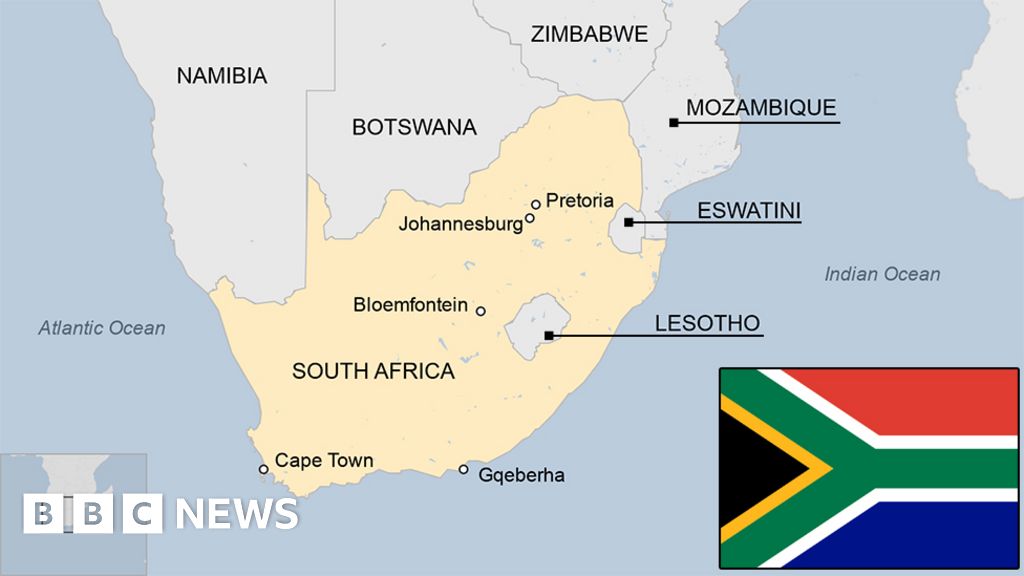Some key events in South Africa’s history:
4th Century – Migrants from the north settle, joining the indigenous San and Khoikhoi people.
1497 – Portuguese explorer Vasco da Gama lands on Natal coast.
1652 – Jan van Riebeeck, representing the Dutch East India Company, founds the Cape Colony at Table Bay.
1795 – British forces seize Cape Colony from the Netherlands. Territory is returned to the Dutch in 1803; ceded to the British in 1806.
1816-1826 – Shaka Zulu founds and expands the Zulu empire, creates a formidable fighting force.
1835-1840 – Boers leave Cape Colony in the ‘Great Trek’ and found the Orange Free State and the Transvaal.
1867 – Diamonds discovered at Kimberley.
1877 – Britain annexes the Transvaal.
1879 – British defeat the Zulus in Natal.
1880-81 – Boers rebel against the British, sparking the first Anglo-Boer War. Conflict ends with a negotiated peace. Transvaal is restored as a republic.
1880s – Gold is discovered in the Transvaal, triggering a gold rush.
1899 – Second Anglo-Boer War begins.
1902 – Treaty of Vereeniging ends the second Anglo-Boer War. The Transvaal and Orange Free State are made self-governing colonies of the British Empire.
1910 – Formation of Union of South Africa by former British colonies of the Cape and Natal, and the Boer republics of Transvaal, and Orange Free State.
1912 – Native National Congress founded, later renamed the African National Congress (ANC).
1913 – Land Act introduced to prevent black South Africans, except those living in Cape Province, from buying land outside reserves.
1914 – National Party founded.
1919 – After World War One, the former German territory of South West Africa, now Namibia, comes under South African administration.
1948 – Policy of apartheid (separateness) adopted when National Party (NP) takes power.
1950 – Population classified by race. Group Areas Act passed to segregate blacks and whites. Communist Party banned. ANC responds with campaign of civil disobedience, led by Nelson Mandela.
1960 – 69 black demonstrators killed at Sharpeville. ANC banned.
1961 – South Africa declared a republic, leaves the Commonwealth. Mandela heads ANC’s new military wing, which launches sabotage campaign.
1960s – International pressure against government begins, South Africa excluded from Olympic Games.
1964 – ANC leader Nelson Mandela sentenced to life imprisonment.
1970s – More than three million people forcibly resettled in black “homelands”.
1976 – More than 600 killed in clashes between black protesters and security forces during uprising which starts in Soweto.
1984-89 – Township revolt, state of emergency.
1989 – FW de Klerk replaces PW Botha as president. Public facilities desegregated. Many ANC activists freed.
1990 – Ban on ANC ends. Nelson Mandela released after 27 years in prison. Namibia becomes independent.
1991 – Start of multi-party talks. De Klerk repeals remaining apartheid laws, international sanctions lifted. Major fighting between ANC and Zulu Inkatha movement.
1994 – ANC wins first non-racial elections. Nelson Mandela becomes president, heading a Government of National Unity. Commonwealth membership restored, remaining sanctions lifted. South Africa takes seat in UN General Assembly after 20-year absence.
1996 – Truth and Reconciliation Commission chaired by Archbishop Desmond Tutu begins hearings on human rights crimes committed by former government and liberation movements during apartheid era.
1998 – Truth and Reconciliation Commission report brands apartheid a crime against humanity and finds the ANC accountable for human rights abuses.
2010 – South Africa hosts the World Cup football tournament.
2013 – Nelson Mandela dies, aged 95.
2014 – Paralympics athlete Oscar Pistorius – nicknamed the ”Blade Runner” because of his prosthetic limbs – is sentenced to five years in jail for killing his girlfriend.
2018 – President Zuma resigns under pressure from the governing ANC over corruption charges, which chooses veteran trade unionist and businessman Cyril Ramaphosa as his successor.
2022 – World Economic Forum warns South Africa risks state collapse over unsustainable government spending, high unemployment, and collapsing infrastructure.
This article was originally published by a www.bbc.com . Read the Original article here. .


